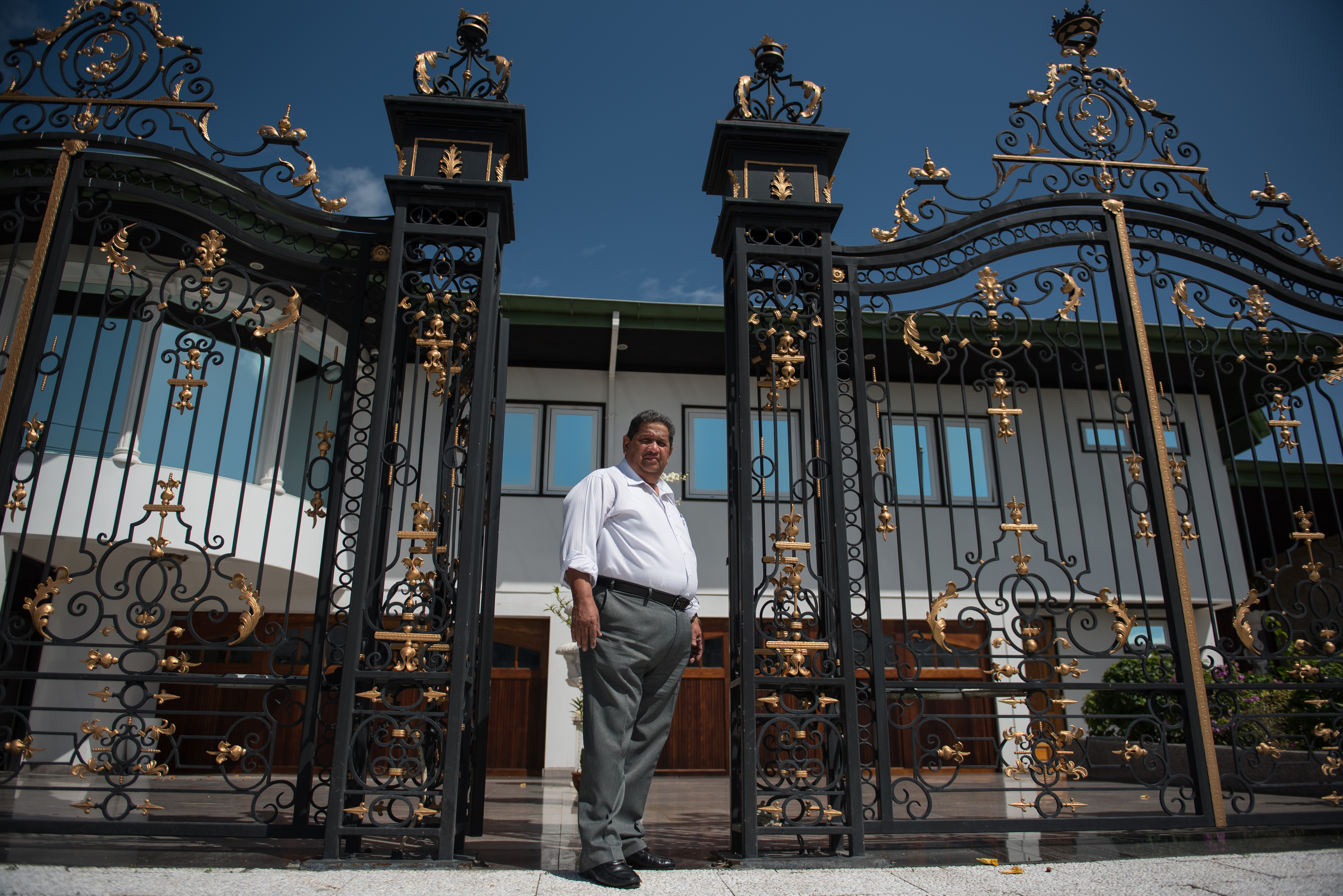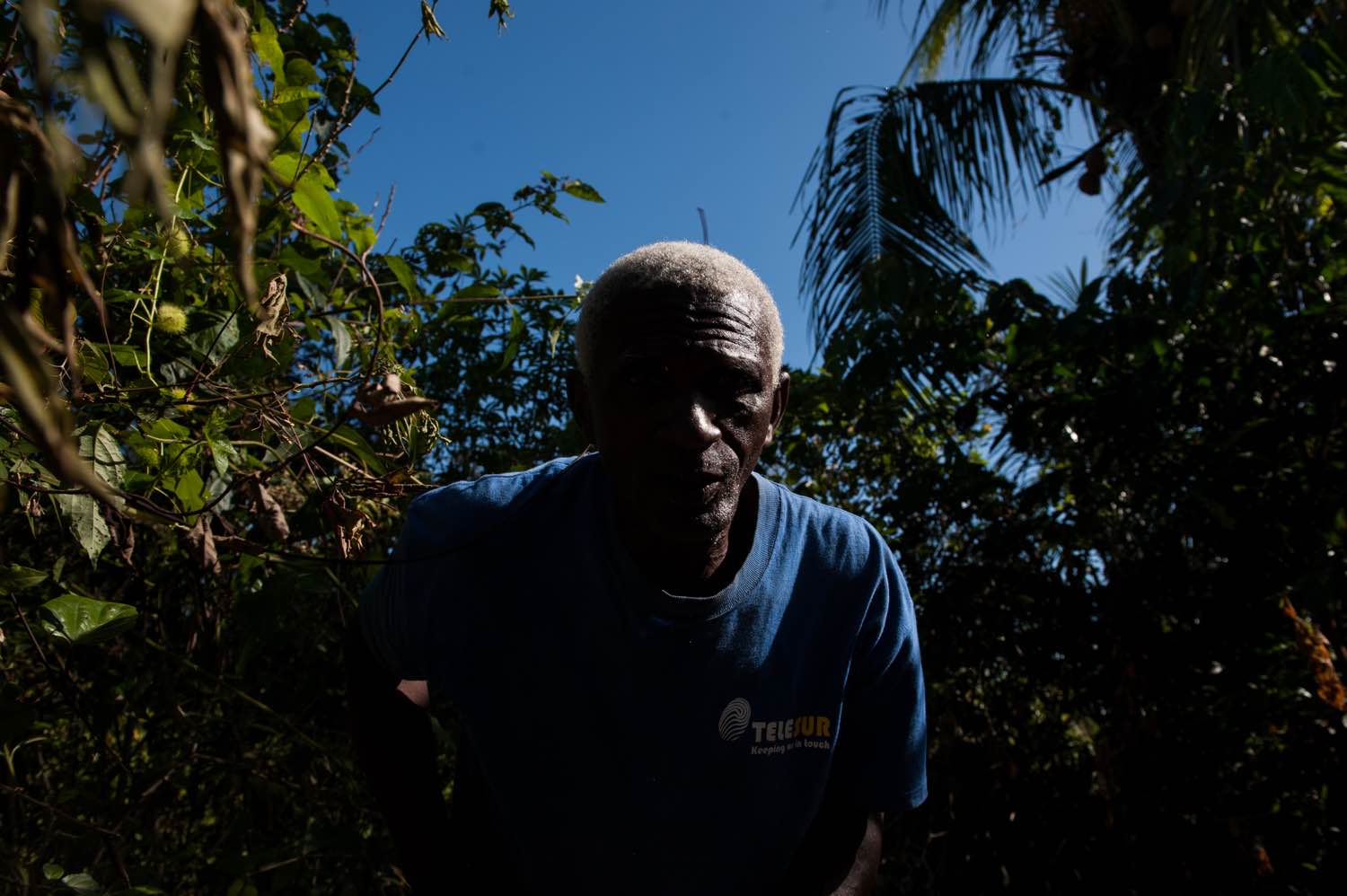Lesson Plan May 2, 2017
The Country a U.S. Corporation Left Behind
Country:
Grades:
Reading and Discussion
- Read all four parts of the Pittsburgh Post-Gazette's "The Land Alcoa Damned" series. Make sure you read the interactive version on the PPG website
- As a class, create a timeline that features the history of Suriname including Alcoa's activity in the country.
- As the class is creating the timeline and after it is finished, discuss the following issues.
- Suriname and the legacy of colonialism
- Why Alcoa started and stopped operating in the country
- The aluminum industry's impact on the Surinamese
- Environment
- Economy
- People
- The importance of the 1958 Brokopondo Agreement and the Afobaka dam
- The ties and connections between Alcoa's operation in Suriname and the US
Debate
- You will now prepare for a debate about Alcoa's departure from Suriname.
- First, you need to identify people or groups who will participate in the debate. Based on the reading, choose at least three distinct people or groups who have an opinion on the subject.
- Next, you need to create the rules for the debate. This includes format, length, and decorum. Make sure you give each side an opportunity to make an opening statement and at least one response or rebuttal.
- Pick which side you want to represent in the debate or your teacher will assign people to positions. Make sure the number of students representing the person or group from the project are about equal in size.
- The main question for the debate is what are the terms for Alcoa's exit from Suriname? Each side should determine
- What are your demands
- What can you compromise on
- What arguments will the other sides make and how can you counter them
- Conduct the debate with your teacher or another adult as the moderator. Make sure to follow the debate rules that the class developed. During the debate, make sure a different person from each side speaks during each segment so that everyone has a chance to participate.
- After the debate, discuss it as a class.
- Were there any demands that you think have to be included in the departure agreement?
- What demands and arguments made the most sense to you and why?
- Who do you think should be consulted and involved in the negotiation process and why?
Extension
As a class, try to develop a departure memorandum of understanding that all sides from your debate could agree to sign.
- How easy or difficult is this process for the class?
- Could you come to an agreement or not?
- Based on the readings and your experience in class, why do you think this has been such a difficult process for Alcoa and the Surinamese government?
<p><a name="CCSS.ELA-Literacy.RI.9-10.1"></a><a href="http://www.corestandards.org/ELA-Literacy/RI/9-10/1/">CCSS.ELA-Literacy.RI.9-10.1</a><br />
Cite strong and thorough textual evidence to support analysis of what the text says explicitly as well as inferences drawn from the text.</p>
<p><a name="CCSS.ELA-Literacy.RI.9-10.8"></a><a href="http://www.corestandards.org/ELA-Literacy/RI/9-10/8/">CCSS.ELA-Literacy.RI.9-10.8</a><br />
Delineate and evaluate the argument and specific claims in a text, assessing whether the reasoning is valid and the evidence is relevant and sufficient; identify false statements and fallacious reasoning.</p>
<p><a name="CCSS.ELA-Literacy.RI.11-12.1"></a><a href="http://www.corestandards.org/ELA-Literacy/RI/11-12/1/">CCSS.ELA-Literacy.RI.11-12.1</a><br />
Cite strong and thorough textual evidence to support analysis of what the text says explicitly as well as inferences drawn from the text, including determining where the text leaves matters uncertain.</p>
<p><a name="CCSS.ELA-Literacy.SL.9-10.1"></a><a href="http://www.corestandards.org/ELA-Literacy/SL/9-10/1/">CCSS.ELA-Literacy.SL.9-10.1</a><br />
Initiate and participate effectively in a range of collaborative discussions (one-on-one, in groups, and teacher-led) with diverse partners on grades 9-10 topics, texts, and issues, building on others' ideas and expressing their own clearly and persuasively.</p>
<p><a name="CCSS.ELA-Literacy.SL.9-10.4"></a><a href="http://www.corestandards.org/ELA-Literacy/SL/9-10/4/">CCSS.ELA-Literacy.SL.9-10.4</a><br />
Present information, findings, and supporting evidence clearly, concisely, and logically such that listeners can follow the line of reasoning and the organization, development, substance, and style are appropriate to purpose, audience, and task.</p>
<p><a name="CCSS.ELA-Literacy.SL.9-10.6"></a><a href="http://www.corestandards.org/ELA-Literacy/SL/9-10/6/">CCSS.ELA-Literacy.SL.9-10.6</a><br />
Adapt speech to a variety of contexts and tasks, demonstrating command of formal English when indicated or appropriate. (See grades 9-10 Language standards 1 and 3 <a href="http://www.corestandards.org/ELA-Literacy/L/9-10/">here</a> for specific expectations.)</p>
<p><a name="CCSS.ELA-Literacy.SL.11-12.1"></a><a href="http://www.corestandards.org/ELA-Literacy/SL/11-12/1/">CCSS.ELA-Literacy.SL.11-12.1</a><br />
Initiate and participate effectively in a range of collaborative discussions (one-on-one, in groups, and teacher-led) with diverse partners on grades 11-12 topics, texts, and issues, building on others' ideas and expressing their own clearly and persuasively.</p>
<p><a name="CCSS.ELA-Literacy.SL.11-12.4"></a><a href="http://www.corestandards.org/ELA-Literacy/SL/11-12/4/">CCSS.ELA-Literacy.SL.11-12.4</a><br />
Present information, findings, and supporting evidence, conveying a clear and distinct perspective, such that listeners can follow the line of reasoning, alternative or opposing perspectives are addressed, and the organization, development, substance, and style are appropriate to purpose, audience, and a range of formal and informal tasks.</p>
<p><a name="CCSS.ELA-Literacy.SL.11-12.6"></a><a href="http://www.corestandards.org/ELA-Literacy/SL/11-12/6/">CCSS.ELA-Literacy.SL.11-12.6</a><br />
Adapt speech to a variety of contexts and tasks, demonstrating a command of formal English when indicated or appropriate. (See grades 11-12 Language standards 1 and 3 <a href="http://www.corestandards.org/ELA-Literacy/L/11-12/">here</a> for specific expectations.)</p>
<p> </p>
<p>Reading:<br />
Make sure students read the article on the <em><a href="http://newsinteractive.post-gazette.com/suriname/overview/">Pittsburgh Post-Gazette</a></em> website. Links are available through the resource pages from the Pulitzer Center or in the lesson plan under student instructions.</p>
<p> </p>
<p>Debate:<br />
Students will identify the people or groups that will participate in the debate. They should at least have a person or group representing Alcoa, the Surinamese government, and the Saamaka.</p>
<p>Have students develop the debate rules and format. This will give them an opportunity to determine what rules they think are important. Provide them with two basic ground rules:</p>
<ol>
<li>There needs to be time for opening remarks and cross exchange or rebuttals.</li>
<li> A different student from each group needs to represent the group in each segment of the debate.</li>
</ol>
<p>Beyond these rules, allow them to format the debate as they see fit. If the students need help thinking of ideas, have them research political debate and forensic debate formats.</p>
<p>Have an adult moderate the debate. This person will ensure that students follow the rules of the debate. He or she will need a clock or stopwatch to keep track of time.</p>
REPORTING FEATURED IN THIS LESSON PLAN
-
×
 English
English











